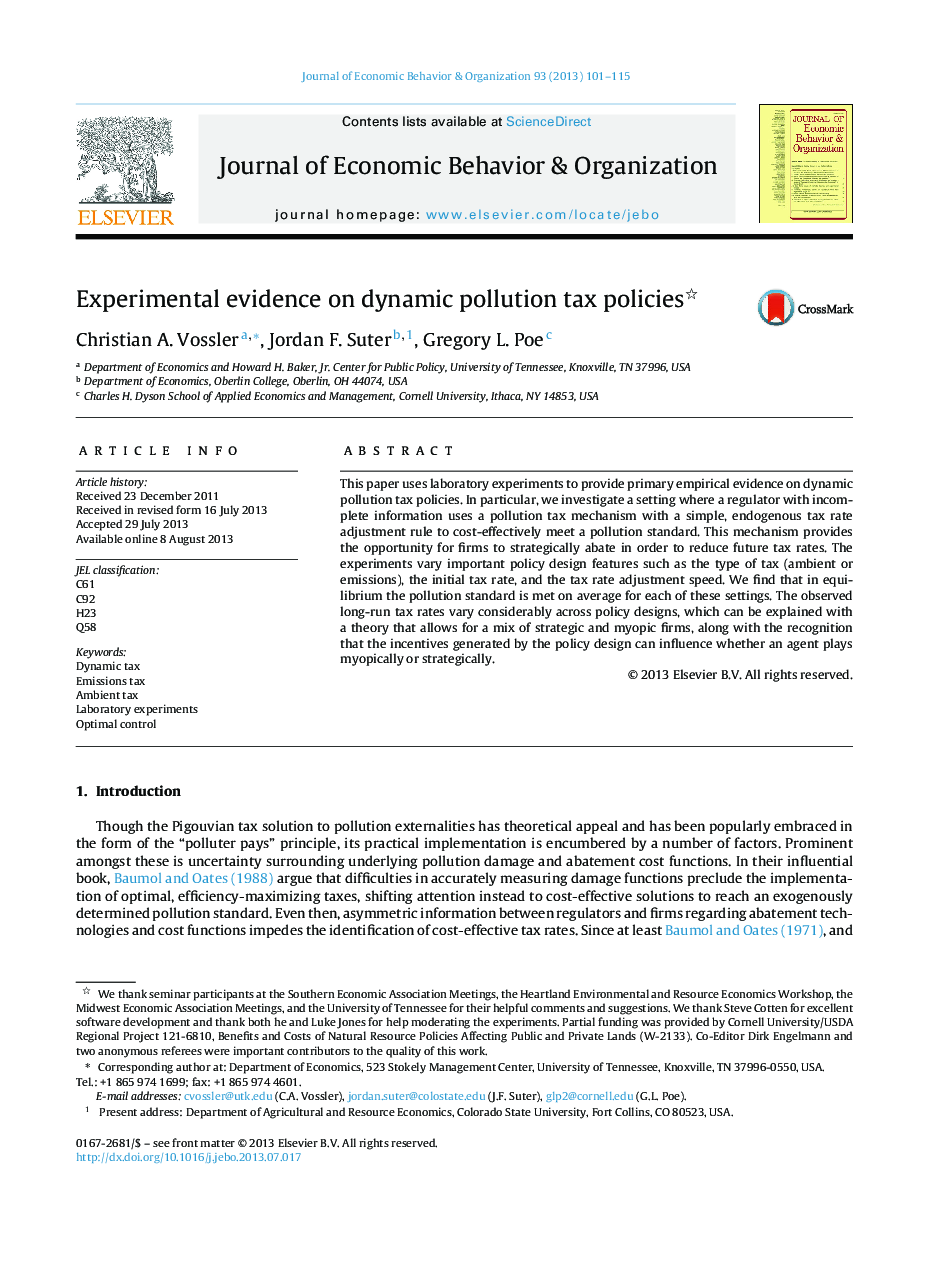| Article ID | Journal | Published Year | Pages | File Type |
|---|---|---|---|---|
| 7243740 | Journal of Economic Behavior & Organization | 2013 | 15 Pages |
Abstract
This paper uses laboratory experiments to provide primary empirical evidence on dynamic pollution tax policies. In particular, we investigate a setting where a regulator with incomplete information uses a pollution tax mechanism with a simple, endogenous tax rate adjustment rule to cost-effectively meet a pollution standard. This mechanism provides the opportunity for firms to strategically abate in order to reduce future tax rates. The experiments vary important policy design features such as the type of tax (ambient or emissions), the initial tax rate, and the tax rate adjustment speed. We find that in equilibrium the pollution standard is met on average for each of these settings. The observed long-run tax rates vary considerably across policy designs, which can be explained with a theory that allows for a mix of strategic and myopic firms, along with the recognition that the incentives generated by the policy design can influence whether an agent plays myopically or strategically.
Related Topics
Social Sciences and Humanities
Economics, Econometrics and Finance
Economics and Econometrics
Authors
Christian A. Vossler, Jordan F. Suter, Gregory L. Poe,
